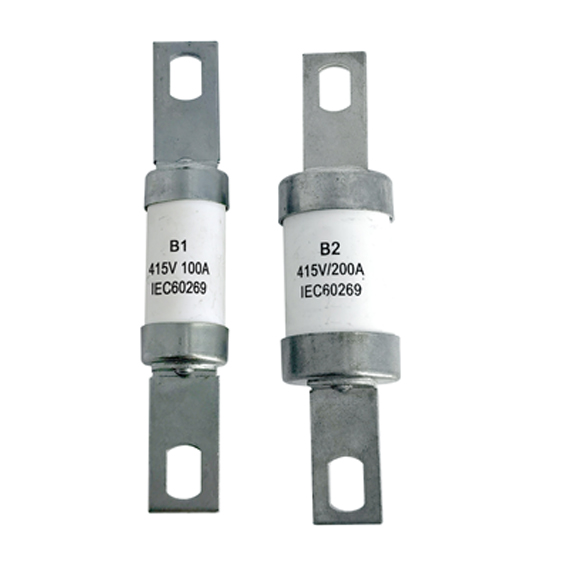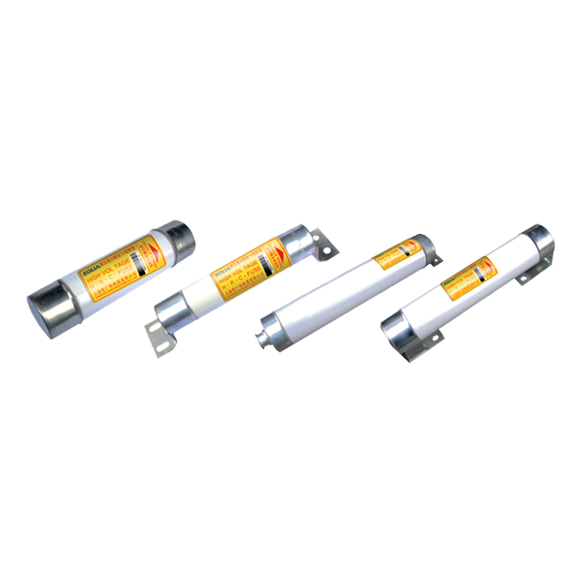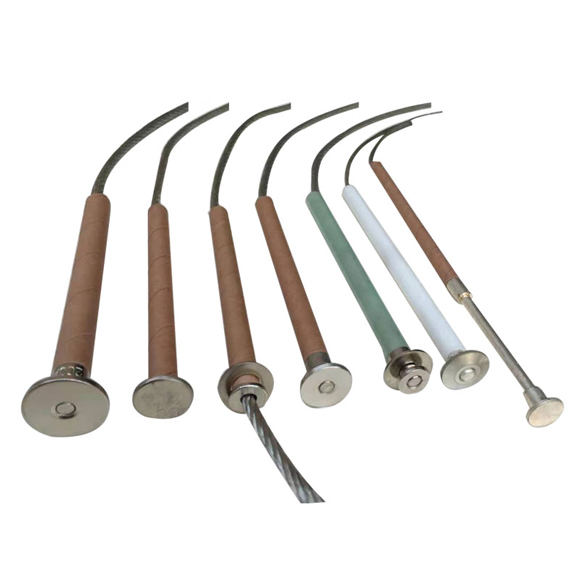How to choose a fuse link
As we all know, fuses are the most commonly used protection devices in power systems. So how to choose the fuse link? What are the precautions for the use of the fuse? Let's learn about it with me.

【1】General principles for fuse link selection
(1) Determine the type of fuse according to the conditions of use.
(2) When selecting the specification of the fuse, the specification of the melt should be selected first, and then the specification of the fuse should be selected according to the melt.
(3) The protection characteristics of the fuse should have a good match with the overload characteristics of the protected object.
(4) In the power distribution system, the fuses at all levels should match each other. Generally, the rated current of the upper melt is 2~3 times larger than the rated current of the lower melt.
(5) For the fuse to protect the motor, attention should be paid to the influence of the starting current of the motor. The fuse is generally only used as short-circuit protection for the motor, and a thermal relay should be used for overload protection.
(6) The rated current of the fuse should not be less than the rated current of the melt; the rated breaking capacity should be greater than the maximum short-circuit current that may occur in the circuit.

【2】Selection of melt-rated current
(1) For loads such as transformers, electric furnaces, and lighting, the rated current of the melt should be slightly greater than or equal to the load current.
(2) For power transmission and distribution lines, the rated current of the melt should be slightly greater than or equal to the safe current of the line.
(3) When used as short-circuit protection in the motor circuit, the starting conditions of the motor should be considered, and the rated current of the melt should be selected according to the length of the starting time of the motor. For a motor with a short starting time, the melt can be determined according to the following formula rated current.
IN melt=Ist/(2.5~3)
In the formula, Ist——the starting current of the motor, unit: A
For motors with long starting times or frequent starting, the rated current of the melt is determined by the following formula
IN melt=Ist/(1.6~2)
The rated current of the fuse at the main busbar powered by multiple motors can be calculated according to the following formula:
IN=(2.0~2.5)Imemax+∑Ime
Note: The rated current of the IN fuse; the rated current of the Ime motor; the rated current of the motor with the largest capacity among Imemax motors; the sum of the rated currents of the remaining motors of ∑Ime.
For the protection of the motor terminal circuit, use the aM type fuse, and the rated current IN of the fuse link is slightly greater than the rated current of the motor;
(4) For the protection of the main circuit of the capacitor compensation cabinet, if a gG-type fuse is selected, the rated current IN of the fuse is approximately equal to 1.8 to 2.5 times the calculated current of the line; if an aM-type fuse is selected, the rated current IN of the fuse is approximately equal to the line 1 to 2.5 times the current.
(5) Selective protection between the upper and lower levels of the line. The ratio of the rated current IN of the upper-level fuse to the lower-level fuse is equal to or greater than 1.6, which can meet the need to prevent the occurrence of leapfrog action and expand the scope of fault power outages.
(6) A fuse is used to protect the semiconductor device. The fuse is connected in series with the semiconductor device, and the rated current of the fuse body is expressed by the effective value, and the rated current of the semiconductor device is expressed by the forward average current. Therefore, the fuse should be calculated according to the following formula Rated current of the body:
IRN≥1.57 IRN≈1.6 IRN where IRN represents the forward average current of the semiconductor device.
(7) Use with reduced capacity
At an ambient temperature of 20°C, we recommend that the actual working current of the fuse link should not exceed the rated current value.
Environmental and working conditions should be taken into consideration when selecting fuse links, such as changes in sealing degree, air flow, connecting cable size (length and cross-section), instantaneous peak value, etc.;
The current carrying capacity test of the fuse link is carried out at an ambient temperature of 20°C, and it is affected by changes in the ambient temperature during actual use.
The higher the ambient temperature, the higher the working temperature of the fuse link and the shorter its life. Conversely, operating at cooler temperatures will extend the life of the fuse link.
(8) In the power distribution line, it is generally required that the rated current of the former melt is 2~3 times larger than that of the latter melt, so as to prevent the occurrence of leapfrog action and expand the scope of a fault power outage.

【3】Precautions for using fuses
1. Its protection performance should be consistent with the overload performance of the protected object. Considering the possible short-circuit current, use a fuse with corresponding braking performance.
3. The rated currents of the melts at all levels in the line should be combined with each other to maintain the rated current of the former melt must exceed the rated current of the lower melt.
2. Its rated voltage should conform to the line voltage level, and its rated current should exceed or be equal to the rated current of the melt.
4. The melt should use the matching melt according to the demand, and it is forbidden to increase the melt or replace the melt with other conductors.
The fuse link manufacturer summarizes for you: After reading the above introduction, I believe everyone has a better understanding of how to choose fuses and precautions for use. For more information, please continue to pay attention to our website, and we will present you with more exciting content in the future.

 English
English 中文
中文 Pусский
Pусский Français
Français Español
Español



